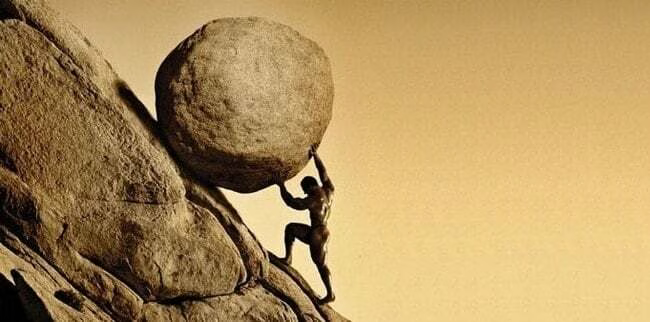Happiness and Struggle

I just finished reading Metamorphosis of Prime Intellect for the first time in around 15 years. It was even more remarkable the second time, I think because I’m more thoughtful now than I was then.
[ NOTE: There will be spoilers if you continue. ]
The book is about human happiness, and how it relates to (and seems to require) struggle and hardship. Here are the summary points:
In a modern-day world a computer scientist creates AI
The AI learns how to completely control matter and energy
It has been given Assimov’s rules, so it’s quite moral
Once it comes online, it starts "fixing" things. It removes sickness, death, and other bad things.
Very quickly it basically creates a new world where people don’t die and can become anything they want, create their own worlds, etc. The only thing they can’t do is permanently hurt each other.
A couple key characters realize this is empty after around 600 years, and they trick it into killing itself.
It leaves one small world behind, Earth, with only them on it, and they have to start from scratch with no technology, no clothes, nothing.
They start civilization back up themselves, but they do so basically living like savages. They reject modernization in hopes of avoiding recreation of what happened for as long as possible.
They die.
It’s fascinating to read this right now, since I just got done reading Waking Up, by Sam Harris, which is a book about finding happiness through meditation and realizing that the self is an illusion.
Then, the whole time I was reading MOPI, I was thinking about a book by Russell I never finished about how people in the modern day (his modern day) are not happy because they have too much provided for them.
His point was that happiness used to be having enough wood and food stored for the winter. Having your family inside your cabin, with healthy kids, and a warm fire. That was happiness.
And the reason it was happiness was because if you were stuck outside without those things, you were dead. Happiness was survival. And barely making it in time, only to emerge victorious in front of a warm fire, well, that was bliss.
But we modern folk (this is Russell saying this), we have everything handed to us, and that’s why we can’t be happy. Quite simply, the struggle has been removed.
This struck me when I read it years back. And it reminded me of the studies that consistently show how poor people tend to be happier. They’re more religious, and they’re more happy.
Perhaps it’s a simple formula: they know they’re one paycheck from destruction, and when they gather with their families to eat, and pray, they consider that their campfire in the cabin. That’s their bliss.
Meanwhile, all the upper classes fret over their iPhones and investment strategies, and load up on anti-depressants.
Removing struggle
So anyway, MOPI reminded me of a post I wrote in May of 2013, called The Future of Happiness >. I wrote about the same thing. About the same "evolution" of removing the primal parts of our being.
Lust. Anger. Hatred. Fear. Many bad things come from these, but what is left of us when we remove them?
I think the best way to define us may be as the desire to satisfy urges. To survive. To thrive. To enjoy things. To eat when hungry. To have sex when aroused. To find an answer when curious.
What are we without these things?
Perhaps the biggest threat from AI doesn’t come from our material destruction, but rather from the removal of our weaknesses. It may be that this type of "improvement" will (and must) remove with it our humanity.
But let’s say we know that. Let’s say we realize it?
Doesn’t that mean we have to basically keep these struggles programmed in as incentives to live and exist and thrive? That takes me to my more recent post, In the Future We’ll All Be Superheroes and Princesses >, where I talk about a situation similar to MOPI, but where we carefully maintain the concept of struggle.
Anyway, to sum up:
Right now our current path of "improvement" is to remove struggle
I think we’re already seeing that it can lead to diminished happiness
Technology will only exacerbate this, and perhaps exponentially
The solution we arrive at seems to be the inevitable creation of false struggle for the purpose of overcoming it, with the alternative being the loss of what makes us human
Thoughts welcome.
Notes
It looks like I had a similar thought before >.